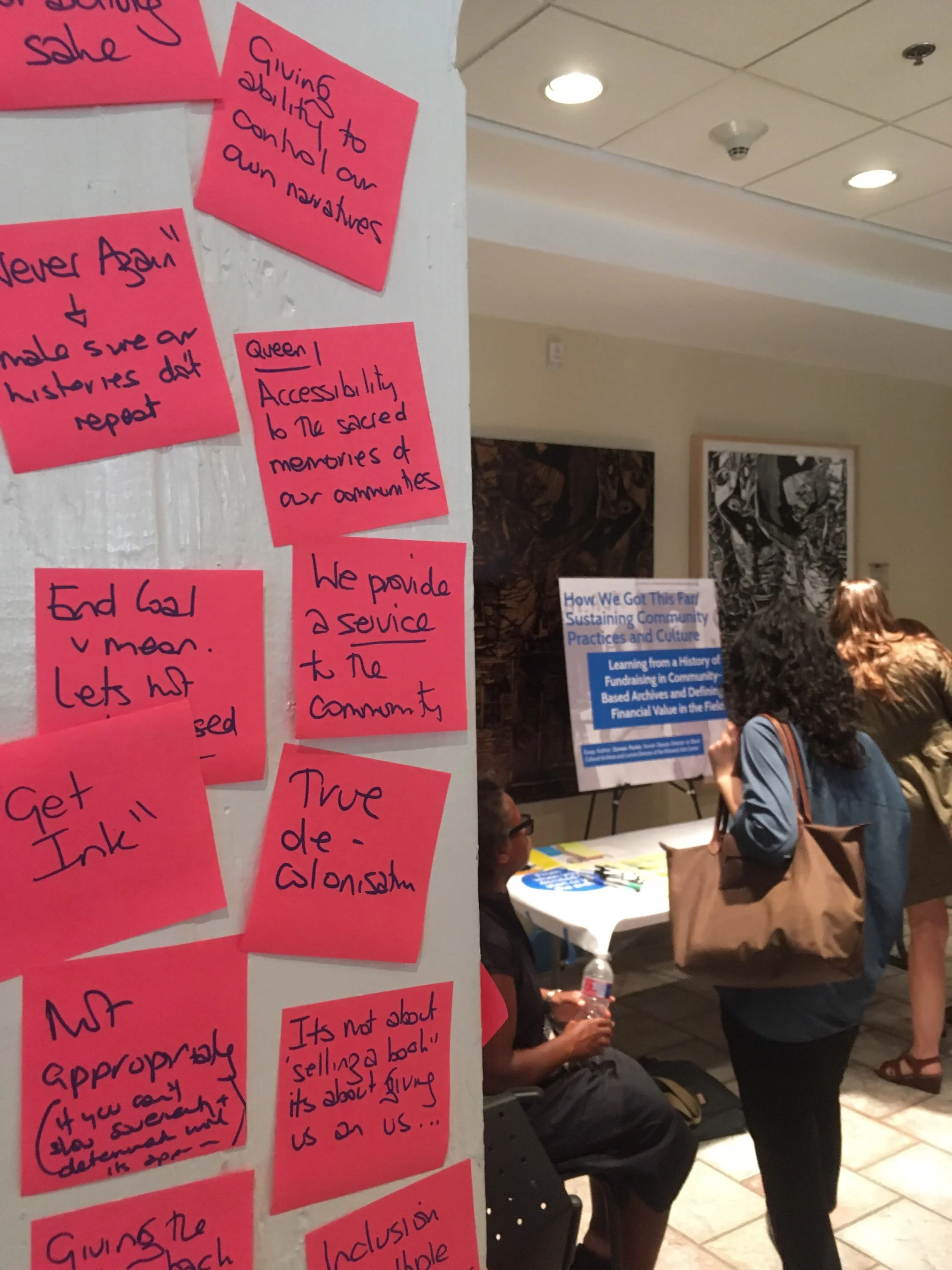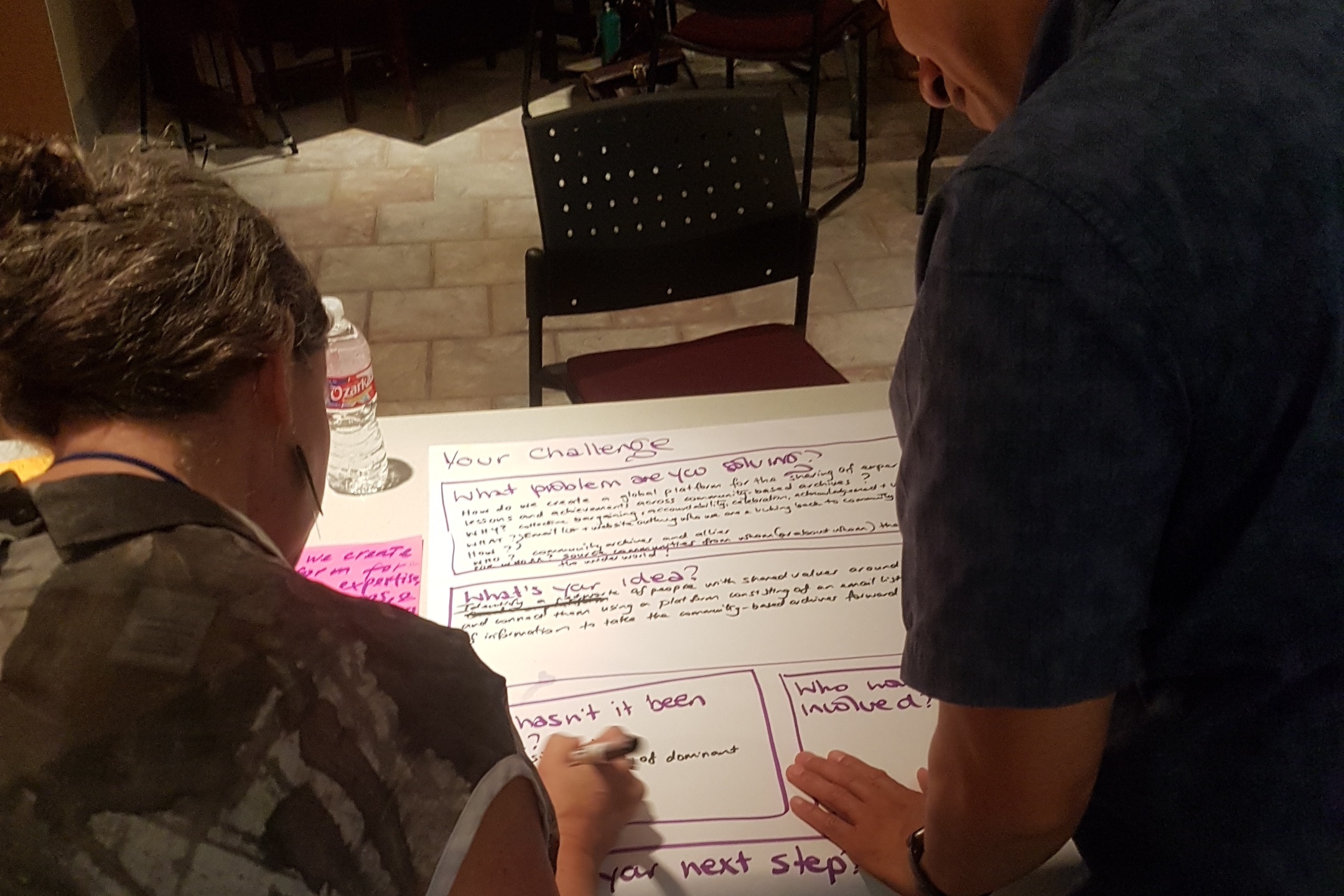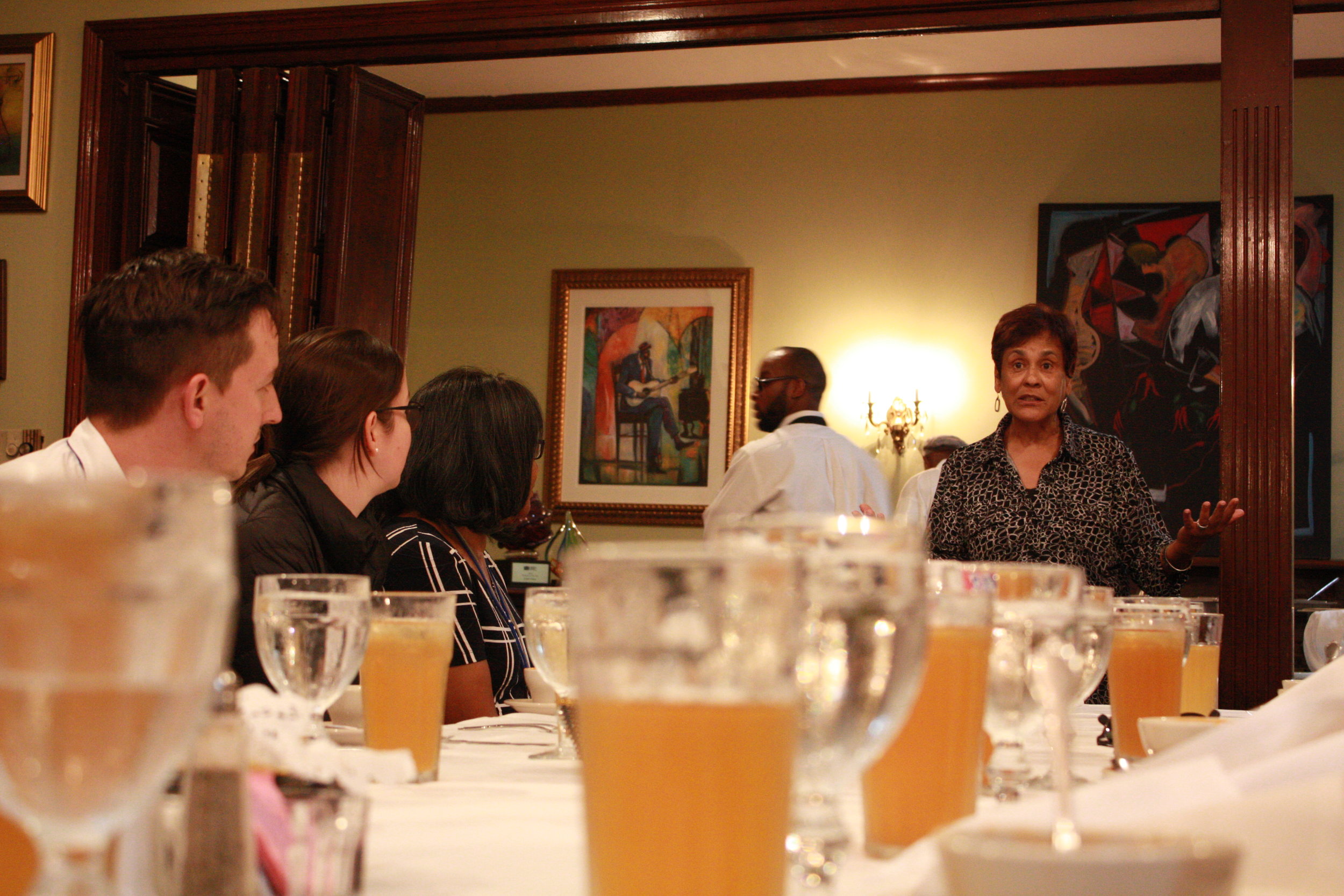Community-based archives hold some of the most valuable materials documenting the lives of marginalized people in the United States and they mostly reside in spaces outside of traditional academic and government run cultural heritage institutions. These archives function as grassroots alternatives to mainstream repositories, where communities make decisions about what is of enduring value to them, shape the collective memory of their own pasts, and control the means through which stories about their past are constructed within their communities. Marginalized communities often create their own archives in response to being shut out of dominant historical narratives that are largely supported by mainstream memory institutions, and in maintaining independence and encouraging community participation, they use these archives as a way to collect on their own terms and to create new narratives about their history. While community-based archives continue to collect and preserve histories of marginalized people, many of them face difficulties growing their operations, keeping their doors open, and enhancing their programming and collections activities because of a lack of access to funding.
Shift Collective, with funding from the Andrew W. Mellon Foundation, hosted a one and a half day symposium Architecting Sustainable Futures: Exploring Funding Models in Community-Based Archives, in order to help equip community-based archives with tools to address one of their most pressing needs for self-sufficiency: sustainable funding. The symposium will took place in September 2018 in New Orleans, LA. This symposium included community-based archives that primarily serve or document marginalized people and communities, including LGBTQIA people, indigenous people, African Americans, Latinx people, immigrants of color, and victims of police violence and mass incarceration in community-based archives, cultural heritage grant funders, academic libraries, museums, public libraries, and scholars who work with community-based archives.
The symposium had five main objectives:
Map the broad field of Community-Based Archives, their diversity of scope, intent and capacity.
Define the current funding models of Community-Based Archives.
Map the funding landscape for Community-Based Archives.
Identify gaps and opportunities to support and build capacity in Community-Based Archives.
Make recommendations for different ways Community-Based Archives can be funded given their capacity.
with support from:




